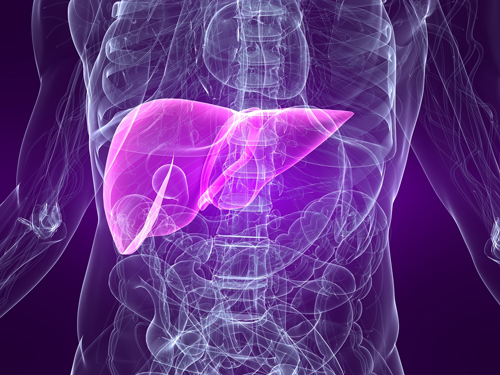Scientists at University College London (UCL) have identified a new immunotherapy against hepatitis B virus (HBV), the world’s most common cause of liver cancer. The team’s study using immune cells isolated directly from patient liver and tumor tissue, showed that using a known drug compound to block the activity of an enzyme called acyl-CoA:cholesterol acyltransferase (ACAT) was highly effective at boosting the response of specific immune system T cells that can fight both the virus and associated tumors. ACAT is required for cholesterol esterification, a mechanism that prevents the accumulation of excessive, potentially toxic levels of cholesterol in cells. The study, in addition, showed that ACAT inhibition acted as an antiviral that directly reduced HBV replication.
Commenting on the findings, Nathalie Schmidt, PhD, from UCL’s division of infection & immunity, said, “We have found a highly effective novel target for the treatment of chronic hepatitis B virus infection and liver cancer. Modulating cholesterol metabolism with ACAT inhibitors has the unique features of directly targeting the virus and tumors while at the same time boosting the T cells that fight them. This enables us to tackle the disease from multiple directions at the same time.”
The results are reported in Nature Communications by the UCL research team and collaborators at Oxford University, the Royal Free London NHS Foundation, and Leiden University Medical Centre. Schmidt is first author of their published paper, which is titled, “Targeting human Acyl-CoA:cholesterol acyltransferase as a dual viral and T cell metabolic checkpoint.”
Each year, chronic HBV (CHB) infection causes an estimated 880,000 deaths globally from liver cirrhosis and liver cancer (hepatocellular carcinoma; HCC), the authors explained. “Worldwide, HBV is the commonest cause of HCC, and HCC is the third most common cause of cancer-related deaths …” Current treatments for chronic HBV infection require long-term antiviral suppression using drugs known as nucleos(t)ide analogs (NUCs), but such therapies don’t completely inhibit ongoing expression of viral antigens, and can cause off-treatment effects.
Immune cells such as T cells are indispensable for fighting viruses and tumors, the UCL team noted, but are often highly dysfunctional and fail to control these diseases. Current standard-of-care treatments for HBV are thus largely incapable of eliminating the virus, do not prevent cancer development, and do not rescue immune cells. And while immune checkpoint inhibition using PD-1 blockade has been tested in Phase III HCC trials and in a Phase Ib study in HBV patients without HCC, the authors noted, “ … in both settings only a minority of patients had sustained responses, underscoring the need for additional approaches to increase therapeutic effect.” They noted, “A pressing goal is to develop a combination of more potent antiviral and immunomodulatory approaches that can achieve functional cure of HBV, defined as loss of detectable circulating viral surface antigen (HBsAg).”
Mala Maini, PhD, at UCL’s division of infection & immunity, explained, “Chronic hepatitis B virus infection is a major global health problem and the most common cause of liver cancer in the world. The development of novel therapeutic options is crucial to improve patient care. In this study, we aimed to identify a treatment target to directly inhibit the virus while also boosting the immune cells fighting it.”
Cholesterol is a lipid that is consumed as part of the diet, and which can exert multiple functions within different cells of the body. HBV infects the liver, an organ that is highly enriched in cholesterol and well known for limiting local immune responses. Recent studies have shown that ACAT knockdown or inhibition can directly reduce the growth of several tumors including HBV-related HCC. In their newly reported in vitro study, using human liver disease tissue samples, Maini’s lab at UCL showed that in contrast with currently available therapies, the tested ACAT inhibitors, including the oral drug avasimibe, boosted human HBV-specific CD8+ T cells capable of eliminating the hepatitis B virus. The immune-boosting effect was especially striking in T cells found in the HBV-infected liver and within liver cancer, overcoming the local restraints on immune cell function, and allowing the T cells to target both the virus and cancerous cells. ACAT inhibitors such as avasimibe, taken orally, have been shown to be well tolerated as cholesterol-lowering drugs in humans.
“We find that ACAT inhibition drives metabolic re-modelling, resulting in enhanced expansion and functionality of human CD8+ T cells directed against HBV and HCC, sampled directly from the site of disease,” the team noted. “The increase in functional HBV-specific CD8+ T cells was not merely due to the recovery of pre-existing responses, but also their expansion due to enhanced proliferation.”
The Maini group then collaborated with Jane McKeating, PhD, and her team at the University of Oxford, to show that ACAT inhibitors could also block the HBV life cycle directly. ACAT inhibition demonstrated “a clear antiviral effect,” by reducing both extracellular HBsAg and HBV particle production. The investigators pointed out this dual effect cannot be achieved by the antivirals currently used for the treatment of chronic hepatitis B.
The combined study results indicate that ACAT inhibition could offer a unique combination of both antiviral and immunotherapeutic effects, the scientists suggested. “… these data highlight the potential of ACAT inhibitors to modulate HBV antigen burden beyond existing antiviral agents, an important effect complementary to their capacity to enhance antiviral and antitumor T cell immunity.”
Commenting on the findings, Schmidt said, “The cholesterol-modifying drug is already known to be safe in humans and we hope that our study now informs the development of clinical trials combining cholesterol modulation with other immunotherapies. In summary, our findings offer exciting new possibilities for the treatment of patients with chronic viral infections and cancer.”
The authors concluded, “Here, we show that ACAT inhibition has antiviral activity against HBV, as well as boosting protective anti-HBV and anti-HCC T cells … Thus, ACAT inhibition provides a paradigm of a metabolic checkpoint able to constrain tumors and viruses but rescue exhausted T cells, rendering it an attractive therapeutic target for the functional cure of HBV and HBV-related HCC.”


